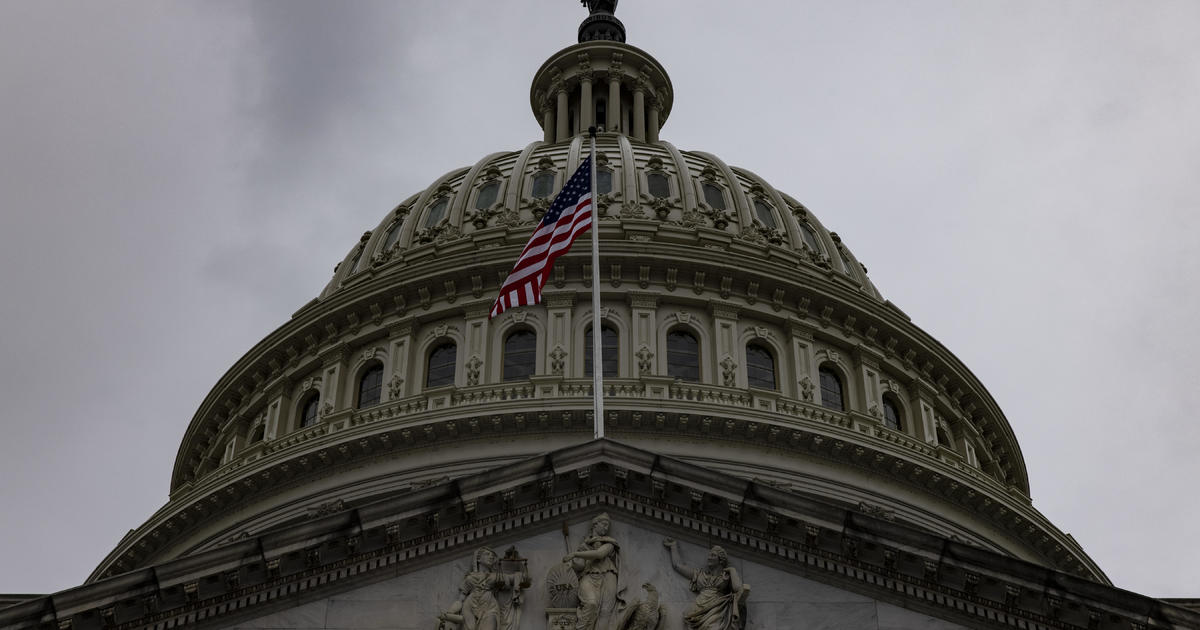
Washington — The joint session of Congress scheduled to occur Wednesday for the counting and certifying of Electoral College votes is set to be marked by high drama, as Republicans in the House and Senate have pledged to challenge the results from several battleground states.
A group of at least 12 Republican senators have said they, along with more than 100 GOP House members, will object to the electoral votes cast in key states, charging their elections were rife with fraud despite no widespread evidence. But as the joint session nears, a growing number of Republican senators are breaking with their colleagues and plan not to sign on to their challenges.
Required under the Constitution, the event has in the past been perfunctory — in 2017, the process of reading and tallying electoral votes spanned 41 minutes, and in 2013, the joint session lasted just 23 minutes, according to a report from the Congressional Research Service.
While the objections are not going to result in a change in the outcome of the election, it will prolong the process by which Congress affirms President-elect Joe Biden’s victory. When the House and Senate separate to debate and vote on an objection, they have up to two hours to consider it, meaning the joint session is likely to stretch well into the night.
The joint session is typically a formality, but this year’s event will force Republicans to decide whether to back President Trump in his attempts to reverse the outcome of the election or uphold the votes cast by millions of Americans.
Here is where Republican senators stand, as of Monday morning:
Oppose the counting of electoral votes
Marsha Blackburn of Tennessee
Mike Braun of Indiana
Ted Cruz of Texas
Steve Daines of Montana
Bill Hagerty of Tennessee
Josh Hawley of Missouri
Ron Johnson of Wisconsin
John Kennedy of Louisiana
James Lankford of Oklahoma
Cynthia Lummis of Wyoming
Roger Marshall of Kansas
Tommy Tuberville of Alabama
Support the counting of electoral votes
Roy Blunt of Missouri
Richard Burr of North Carolina
Shelley Moore Capito of West Virginia
Bill Cassidy of Louisiana
Kevin Cramer of North Dakota
Susan Collins of Maine
John Cornyn of Texas
Tom Cotton of Arkansas
Lisa Murkowski of Alaska
Mitt Romney of Utah
Ben Sasse of Nebraska
Richard Shelby of Alabama
John Thune of South Dakota
Pat Toomey of Pennsylvania
Roger Wicker of Mississippi
Unknown/unclear
Senate Majority Leader Mitch McConnell — Previously discouraged Republican members for objecting, and last week called the upcoming vote “the most consequential vote” he will cast.
John Barrasso of Wyoming
John Boozman of Arkansas
Mike Crapo of Idaho
Joni Ernst of Iowa
Deb Fischer of Nebraska
Lindsey Graham of South Carolina
Chuck Grassley of Iowa
John Hoeven of North Dakota
Cindy Hyde-Smith of Mississippi
Jim Inhofe of Oklahoma
Mike Lee of Utah
Kelly Loeffler of Georgia
Jerry Moran of Kansas
Rand Paul of Kentucky
Rob Portman of Ohio
Jim Risch of Idaho
Mike Rounds of South Dakota
Marco Rubio of Florida
Rick Scott of Florida
Tim Scott of South Carolina
Dan Sullivan of Alaska
Thom Tillis of North Carolina
Todd Young of Indiana

